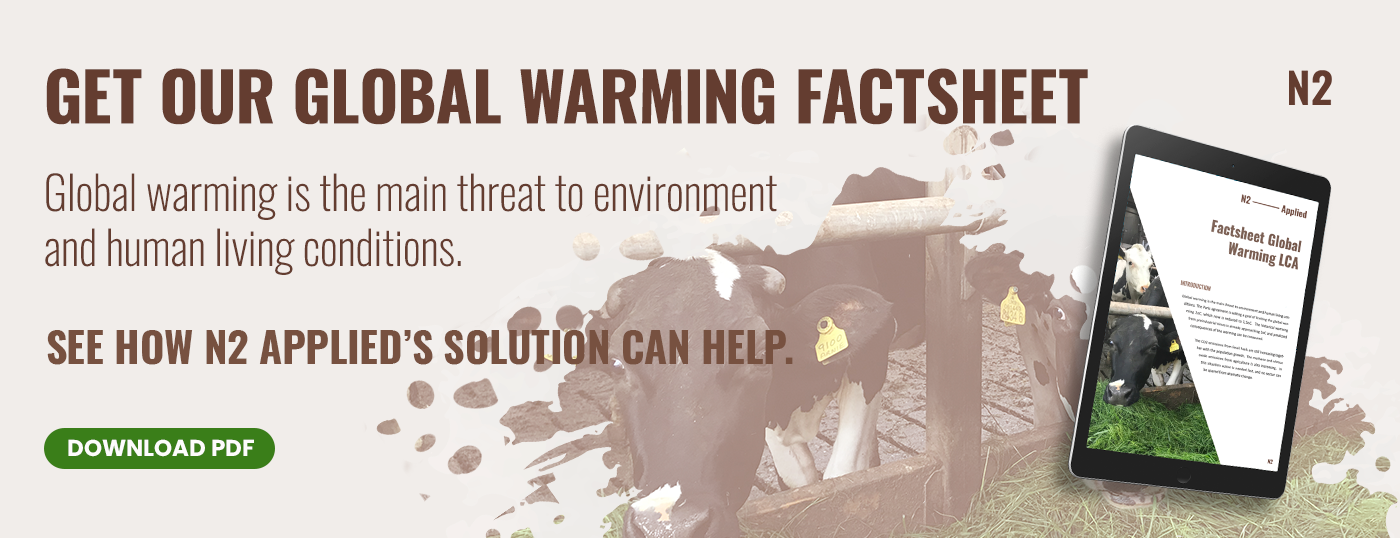Agriculture is highly exposed and vulnerable to the effects of climate change, which in some instances could prove devastating to the industry. At the same time agricultural activities is one of the major contributors to climate change.
Farmers already play an important role in the carbon cycle by binding carbon in plants and soil. They are in the unique position of contributing, mitigating and suffering from climate change. All efforts to improve the farm’s GHG footprint provides a twofold benefit for the farmer, preventing climate change from interfering with the weather patterns upon which farming relies. Farmers have a unique position to mitigate climate change.
Climate change and farmer’s challenges
The challenge of climate change is a global one. The effects of climate change are already felt by farmers throughout the world in terms of changing rainfall patterns, rising temperatures variability in seasonality and by an increase in extreme weather events such as heatwaves, drought storms and floods. These challenges are not always regarded as new, but they are considered familiar risks that are intensified by recent climate changes. As temperatures continue to rise however, new pest and disease pressures are impacting crop yields and quality. These changes constitute a major threat for farmers, who risk that the yield of crops is destroyed. In a more general sense, the changes represent a threat to the global food production system.
Agriculture accounts for 10% of the EU’s greenhouse gas emissions. Globally more than one quarter of the GHG emissions come from agriculture, forestry and land-use change. GHG emissions from crop and livestock production grew by 14% between 2001 and 2011. The new FAOSTAT emissions database, which represents the most comprehensive knowledge base on agricultural greenhouse gas emissions, show a continuing increase of GHG emissions from agriculture by almost 100% over the last 50 years.

Source: FAO.org
Agriculture accounts for 10% of the EU’s greenhouse gas emissions
Unique position for farmers
Farmers already plays an important positive role in the carbon cycle by binding carbon in plants and soil. They are in the unique position of contributing to climate change, suffering from the consequences and help mitigating climate change by climate smart farming. All efforts to improve the farm’s GHG footprint provides a twofold benefit for the farmer, preventing climate change from interfering with the weather patterns upon which farming relies.

By using practices like conservation tillage and forage management, farmers can enhance the soil they work and plants they grow take greenhouse gasses out of the atmosphere. Farmers can also mitigate climate change by reducing the amount of energy used on the farm or produce renewable energy (biogas, wind, solar) by reducing the use of chemical fertilizer, by feed-strategy (e.g. optimizing feed-mix and local sourcing) as well as other farm management strategies.
Agricultural activities can help mitigate climate change and provide benefits
The severity of the effects as well as the opportunities described above provides solid reasoning on why farmers should care about climate change. More specifically: Caring about climate change and choosing to contribute to mitigating climate change, can lead to major benefits for farmers in the future.
Additionally, as agricultural activities have a high potential to mitigate climate change, farmer’s actions can have a significant positive impact on the global society. This way farmers can contribute to shifting the view on agriculture as a part of the problem, to an important factor in helping to solve the climate change issue.
If farming provides the societal benefit of removing atmospheric carbon by adopting regenerative practices, it seems reasonable to receive compensation for the efforts. A method that is supported by the European Union is conservation agriculture, which has other significant benefits which can act as a real incentive for farmers. The World Business Council for Sustainable Development (WBCSD) launched a report highlighting the business case for investing in soil health. Mitigating climate change with climate smart agricultural activities can turn into an interesting value proposition!





